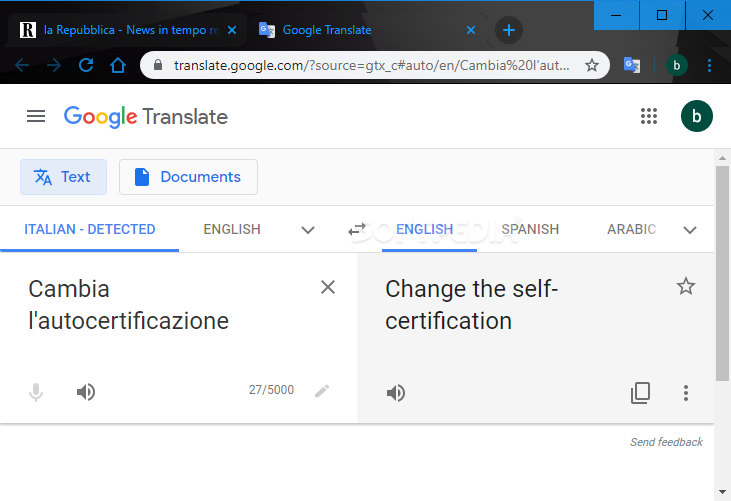

( Stefan Krasowski / CC BY 2.0)īerg (noun) – Mountain. The demonym for the country’s citizens is Basotho. From Persian.Īweh (exclamation) – Enthusiastic yes, absolutely.ĭowntown Maseru, the capital of Lesotho. Most famous for the battle of Isandlwana, in which the British colonial army suffered their greatest single military defeat ever.Īpartheid (noun) – Literally “apartness” in Afrikaans, apartheid was the policy of racial segregation implemented by the National Party from 1948 to 1994, resulting in the oppression and labour exploitation of South Africa’s black majority, and their systematic exclusion from the country’s mainstream economic, educational and social life.Ītchar (noun) – A spicy relish of Indian origin, much like a mix between chutney and a pickle and usually made from green mangoes. This recognises that while the declared war was ostensibly between the British and Boers, other people – Africans and Indians – also took part, and were victims of the conflict.Īnglo-Zulu War (noun) – War between the British and the Zulus, fought in 1879. Today the Anglo-Boer War is better known as the South African War. While strictly the Second Boer War – the first being fought from 1880 to 1881 – it was by far the more significant conflict. From the isiXhosa and isiZulu.Īnglo-Boer War (noun) – War between the British and the Boers, the forebears of today’s Afrikaners, from 1899 to 1902.

A traditional drink, amasi is now produced commercially. From the isiZulu.Īmasi (noun) – Thick curdled milk, also known as maas similar to yoghurt. From the isiZulu for “chiefs”.Īmakhosi (noun, plural) – Traditional leaders chiefs (plural). From the Dutch Afrikaan (an African).Īfrikaner (noun) Indigenous South African Bos indicus breed of long-horned beef cattle.Īg (exclamation) – Expression of frustration, outrage, impatience or resignation: “Ag no! I spilled coffee on my keyboard again!”Īmakhosi (noun) – Affectionate term for the Kaizer Chiefs football club. From the Dutch for “African”.Īfrikaner (noun) – Afrikaans-speaking South African. Afrikaans was considered a dialect of Dutch – known as “Cape Dutch” – until recognised as a language in the late 19th century. The name was coined by University of KwaZulu-Natal Africanis expert Johan Gallant, from “Africa” and “canis”, the Latin for dog.Īfrikaans (noun) – South African language, developed out of the Dutch spoken in the country since the first Dutch East India Company settlement in the Cape, established in 1652. Known for its intelligence, disease-resistance and excellent adaptation to harsh African conditions, the breed evolved in association with humans, instead of being artificially bred in the manner of European breeds. From the Khoisan.Īccrual (noun) – South African legal principle whereby a person going through a divorce may, if the value of their property has increased less than that of their spouse, claim at half of the difference in the accumulated value of their joint property.Īfricanis (noun) – Indigenous breed of African dog, thought to be distantly related to other landrace dogs such as the dingo. Ībba (verb) – Carry a child secured to one’s back with a blanket. From the isiXhosa umkwetha, plural abakwetha. ( Spencer Wright / CC BY 2.0)Ībakwetha (noun, plural) – Young Xhosa men being initiated into manhood at initiation school. This glossary explains some of the words often used when English is spoken in South Africa.Īn aardwolf in the Hamerton Zoo in the UK. It’s estimated that half of South Africa’s people have a speaking knowledge of the language. Later immigrants – Greeks, Lebanese, Eastern European Jews and others – added new words to local English.Īccording to the 2011 census, English is the home language of 9.6% of South Africans – a third of them not white.Įnglish is the language of public life: government, business and the media. Here and there are words imported from British, Portuguese and Dutch colonies, such as India, Mozambique, Malaysia and Indonesia. South African English also borrows from African languages such as isiZulu, isiXhosa, Sesotho and Setswana, and the indigenous languages of the Khoesan and Nama people. These influences include Afrikaans, a South African language that grew out of a variety of Dutch spoken in the 1500s. Since then South Africa’s everyday English has gradually absorbed many words from African languages. By South Africa gateway on 2 September 2021 Mixed with over a dozen African languages for over two centuries, spiced by imports from British, Dutch and Portuguese colonies, South African English has its own rich, varied and sometimes weird flavour.Įnglish has been spoken in South Africa for over 200 years, at least since the British military seized the Cape of Good Hope settlement from the Dutch in 1795 to keep the Cape out of the hands of revolutionary France, then a Dutch ally.


 0 kommentar(er)
0 kommentar(er)
